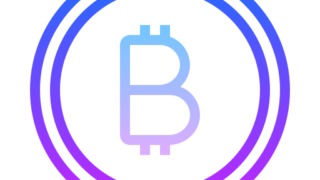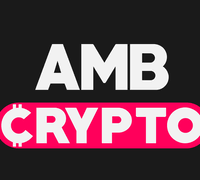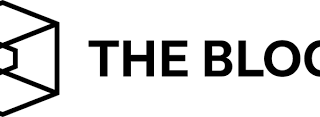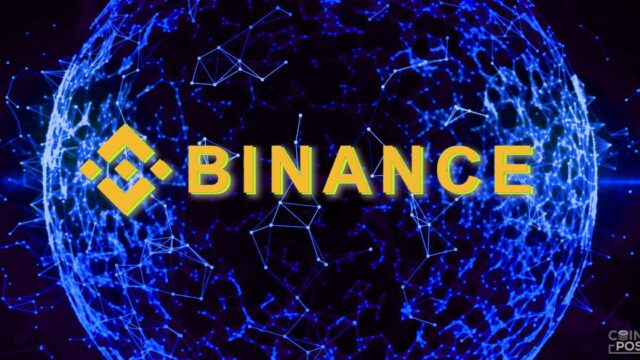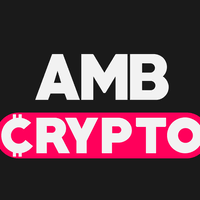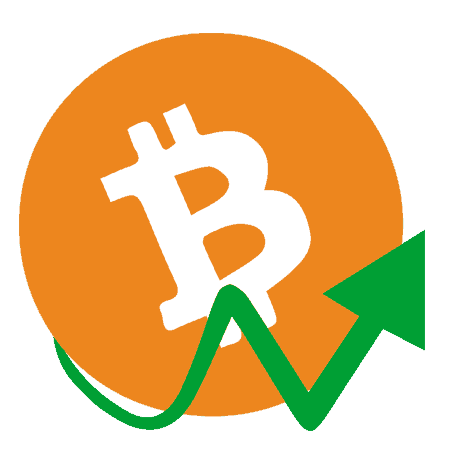There’s more to crypto than just Bitcoin. Explore and learn alternative token investment strategies and diversify your portfolio today.

Bitcoin, in a way, is the big brother of the cryptocurrency world. Since Bitcoin’s creation over a decade ago, thousands of alternative cryptocurrencies have followed in its steps. These newer cryptocurrencies are called altcoins. While many of them have failed, other altcoins have been more resilient and shown promise. These tokens may not have as large a capitalization as Bitcoin, but they often have robust technologies backing them.
What is Bitcoin?
Bitcoin (BTC) is the world’s first decentralized cryptocurrency. The coin serves as a medium of exchange and a store of value without centralized control. Anyone is allowed to mine BTC, and updates on the platform are implemented based on community consensus. While Bitcoin’s creator Satoshi Nakamoto has remained anonymous, the cryptocurrency and its underlying blockchain technology are changing the world.
You only need to look at social media to see how popular the topics of Bitcoin and cryptocurrencies are. This phenomenon is primarily due to the wild but impressive price action of digital currency. You could initially purchase Bitcoin for pennies, but it has since seen prices in the tens of thousands of US dollars.
If you’re just diving into the cryptocurrency market, learning about other tokens will help you increase your knowledge base. We’ve got together five great examples of cryptocurrencies you can get to know other than Bitcoin.
Bitcoin alternatives for beginners
Ethereum (ETH)
Ethereum is a blockchain that also allows for the running of smart contracts in a decentralized manner. Unlike a regular computing system that runs on a single device, Ethereum runs on many machines globally. Ethereum is the cryptocurrency world’s first decentralized computer and the birthplace of decentralized applications (DApps).
Ether (ETH) is the blockchain’s native utility token required for the smooth running of the Ethereum blockchain. The network is also host to other tokens and projects built on the blockchain. From crypto games to comprehensive financial suites, the network has it all.
ETH currently trades in the range of thousands of US dollars with a roller-coaster ride since 2015 regarding price and network growth. The price was only $0.43 per ETH in October 2015 to put this in perspective. That’s a significant return on investment compared to current prices.
BNB
BNB might be a fairly new player in the market, but it has seen a quick rise to one of the larger market cap coins available. BNB is used to pay transaction fees on Binance Smart Chain (BSC). You can also use it for reduced fees on the Binance exchange and decentralized exchange (DEX). BNB originally existed as an ERC20 token on Ethereum before migrating to the Binance Chain.
While fee payment on Binance was the primary use of the token initially, its utility has since evolved. Registered Binance users worldwide are staking BNB tokens on the platform and earning an annual return of up to roughly 25%. A wide variety of BNB staking products from Binance and independent projects are gaining popularity for their passive income opportunities.
Since gas fees for Binance Chain and Binance Smart Chain are payable in BNB, a recent surge of developer activity has contributed to its increased adoption. With the Binance Visa Card, more than 60 million merchants globally now accept cryptocurrency payments. The potential of the token within and outside the Binance ecosystem is more extensive than ever. These growing use cases have pushed BNB to the third position on Coinmarketcap in a healthy sign of the token’s popularity.
Cardano (ADA)
When it comes to cryptocurrencies backed by solid technology, Cardano (ADA) is one worth mentioning. Over time, Ethereum has developed scalability issues that make the blockchain expensive to use. Cardano developers wanted to create a viable alternative to Ethereum without these problems based on core scientific principles. Cardano is more scalable than Ethereum and also contains new features.
ADA is the native token of the Cardano blockchain that hopes to disrupt decentralized finance. The blockchain also has potential use cases in product traceability and as an identity management system. The token and blockchain boast a high number of real-world use cases compared to others in the industry. At the time of writing, ADA is currently a top ten token by market capitalization.
Monero (XMR)
Monero (XMR) is a blockchain and token with a heavy emphasis on privacy and other valuable features. Most cryptocurrencies provide some basic privacy, but Monero has taken this concept further. The project implemented ring signatures for extra scalability and decentralization, unlike other blockchains at the time. Using the open-source platform makes for entirely untraceable, secure, and private transactions.
While it’s not one of the larger coins by market capitalization, it’s still popular in the cryptocurrency community. Due to its privacy features, XMR has gained a reputation as a token associated with the dark web. People fighting oppressive governments have also used the token to fund their campaigns without fear of being tracked by central authorities.
Stellar (XLM)
The Stellar blockchain takes more of a focus on enterprise solutions for the financial industry. While many other cryptocurrencies can serve individual needs, Stellar can support higher traffic and speed needed for financial institutions. Stellar presents a faster and more affordable alternative to some financial legacy systems. By adopting the Stellar blockchain, users can cut out several intermediaries and save money in the process.
XLM is Stellar’s native cryptocurrency that has already shown great promise since its creation. The network has the potential to revolutionize cross-border payments with XLM. The token also finds itself in the top 20 coins by market capitalization and is again another famous and popular project.
 Investment strategies for cryptocurrencies
Investment strategies for cryptocurrencies
Buy and HODL
These days, hodling cryptocurrencies is one of the fastest ways to generate passive income. All you need is a cryptocurrency wallet and a reliable exchange like Binance to buy your crypto. You also don’t need to buy a whole coin or token either. It’s easy to buy cryptocurrencies in small fractions while slowly increasing your holdings.
Start staking and saving
Staking cryptocurrencies is an excellent way to support a network’s ecosystem. It involves holding your tokens on a particular network or in a staking pool to earn interest over time. With BNB staking, you can, for example, make healthy amounts of interest with Binance. Binance uses your staked tokens to verify transactions on the network and then pays a return. Some traders prefer staking tokens to simply buying and holding.
Try regular cryptocurrency trading
You can earn profits long and short term on a centralized or decentralized exchange with advanced automated trading tools. A trader attempts to take advantage of price swings and trends to buy low and sell high. Day trading is one such example that most people are familiar with. There are also other strategies, including arbitrage trading, swing trading, and scalping.
Consider cryptocurrency mining
Rewards for solo mining, especially with Bitcoin, are now extremely difficult to get. You can, however, still make a profit with cloud mining or by joining an in-person mining pool. Cloud mining allows you to pay a subscription fee and get dividends at intervals. There’s no need to look after mining machines or install any software yourself. With a mining pool, you can mine blocks as a unit with other mining machines. All the block rewards are shared between you and others sharing the same computing power.
Where can I start trading cryptocurrencies?
Whether you want to buy, sell, or trade cryptocurrencies, you will need to start by creating an account on a reliable cryptocurrency exchange. Creating an account is now the standard first step to take, and you may even need to complete KYC (Know Your Customer) processes first.
Binance has an extensive range of cryptocurrencies available to buy, and you can usually get your hands on some crypto in under 15 minutes. Simply visit the official Binance website and follow the prompts to create an account. The exchange currently offers:
-
591 trading pairs
-
Peer-to-peer trading with zero fees
-
Almost instant exchange transactions
-
Over 150 different payment methods
-
Regular and P2P exchanges
-
A VIP program with frequent rewards and discounts
Conclusion
It’s key to learn that there’s more to cryptocurrency than Bitcoin. We can’t deny its massive influence on the ecosystem, but we now have a healthy community of altcoins too. With the recent press and surge in popularity of cryptocurrencies, it’s a great time to start understanding more about what’s on offer.
Nevertheless, do not forget that cryptocurrencies are high-risk assets. Make sure to keep yourself informed on all investments you make.
Cryptocurrency investment is subject to high market risk. Binance is not responsible for any of your trading losses. The opinions and statements made above should not be considered financial advice.
Read the following articles for more information:
-
What Is BNB?
There’s more to crypto than just Bitcoin. Explore and learn alternative token investment strategies and diversify your portfolio today.

Bitcoin, in a way, is the big brother of the cryptocurrency world. Since Bitcoin’s creation over a decade ago, thousands of alternative cryptocurrencies have followed in its steps. These newer cryptocurrencies are called altcoins. While many of them have failed, other altcoins have been more resilient and shown promise. These tokens may not have as large a capitalization as Bitcoin, but they often have robust technologies backing them.
What is Bitcoin?
Bitcoin (BTC) is the world’s first decentralized cryptocurrency. The coin serves as a medium of exchange and a store of value without centralized control. Anyone is allowed to mine BTC, and updates on the platform are implemented based on community consensus. While Bitcoin’s creator Satoshi Nakamoto has remained anonymous, the cryptocurrency and its underlying blockchain technology are changing the world.
You only need to look at social media to see how popular the topics of Bitcoin and cryptocurrencies are. This phenomenon is primarily due to the wild but impressive price action of digital currency. You could initially purchase Bitcoin for pennies, but it has since seen prices in the tens of thousands of US dollars.
If you’re just diving into the cryptocurrency market, learning about other tokens will help you increase your knowledge base. We’ve got together five great examples of cryptocurrencies you can get to know other than Bitcoin.
Bitcoin alternatives for beginners
Ethereum (ETH)
Ethereum is a blockchain that also allows for the running of smart contracts in a decentralized manner. Unlike a regular computing system that runs on a single device, Ethereum runs on many machines globally. Ethereum is the cryptocurrency world’s first decentralized computer and the birthplace of decentralized applications (DApps).
Ether (ETH) is the blockchain’s native utility token required for the smooth running of the Ethereum blockchain. The network is also host to other tokens and projects built on the blockchain. From crypto games to comprehensive financial suites, the network has it all.
ETH currently trades in the range of thousands of US dollars with a roller-coaster ride since 2015 regarding price and network growth. The price was only $0.43 per ETH in October 2015 to put this in perspective. That’s a significant return on investment compared to current prices.
BNB
BNB might be a fairly new player in the market, but it has seen a quick rise to one of the larger market cap coins available. BNB is used to pay transaction fees on Binance Smart Chain (BSC). You can also use it for reduced fees on the Binance exchange and decentralized exchange (DEX). BNB originally existed as an ERC20 token on Ethereum before migrating to the Binance Chain.
While fee payment on Binance was the primary use of the token initially, its utility has since evolved. Registered Binance users worldwide are staking BNB tokens on the platform and earning an annual return of up to roughly 25%. A wide variety of BNB staking products from Binance and independent projects are gaining popularity for their passive income opportunities.
Since gas fees for Binance Chain and Binance Smart Chain are payable in BNB, a recent surge of developer activity has contributed to its increased adoption. With the Binance Visa Card, more than 60 million merchants globally now accept cryptocurrency payments. The potential of the token within and outside the Binance ecosystem is more extensive than ever. These growing use cases have pushed BNB to the third position on Coinmarketcap in a healthy sign of the token’s popularity.
Cardano (ADA)
When it comes to cryptocurrencies backed by solid technology, Cardano (ADA) is one worth mentioning. Over time, Ethereum has developed scalability issues that make the blockchain expensive to use. Cardano developers wanted to create a viable alternative to Ethereum without these problems based on core scientific principles. Cardano is more scalable than Ethereum and also contains new features.
ADA is the native token of the Cardano blockchain that hopes to disrupt decentralized finance. The blockchain also has potential use cases in product traceability and as an identity management system. The token and blockchain boast a high number of real-world use cases compared to others in the industry. At the time of writing, ADA is currently a top ten token by market capitalization.
Monero (XMR)
Monero (XMR) is a blockchain and token with a heavy emphasis on privacy and other valuable features. Most cryptocurrencies provide some basic privacy, but Monero has taken this concept further. The project implemented ring signatures for extra scalability and decentralization, unlike other blockchains at the time. Using the open-source platform makes for entirely untraceable, secure, and private transactions.
While it’s not one of the larger coins by market capitalization, it’s still popular in the cryptocurrency community. Due to its privacy features, XMR has gained a reputation as a token associated with the dark web. People fighting oppressive governments have also used the token to fund their campaigns without fear of being tracked by central authorities.
Stellar (XLM)
The Stellar blockchain takes more of a focus on enterprise solutions for the financial industry. While many other cryptocurrencies can serve individual needs, Stellar can support higher traffic and speed needed for financial institutions. Stellar presents a faster and more affordable alternative to some financial legacy systems. By adopting the Stellar blockchain, users can cut out several intermediaries and save money in the process.
XLM is Stellar’s native cryptocurrency that has already shown great promise since its creation. The network has the potential to revolutionize cross-border payments with XLM. The token also finds itself in the top 20 coins by market capitalization and is again another famous and popular project.
 Investment strategies for cryptocurrencies
Investment strategies for cryptocurrencies
Buy and HODL
These days, hodling cryptocurrencies is one of the fastest ways to generate passive income. All you need is a cryptocurrency wallet and a reliable exchange like Binance to buy your crypto. You also don’t need to buy a whole coin or token either. It’s easy to buy cryptocurrencies in small fractions while slowly increasing your holdings.
Start staking and saving
Staking cryptocurrencies is an excellent way to support a network’s ecosystem. It involves holding your tokens on a particular network or in a staking pool to earn interest over time. With BNB staking, you can, for example, make healthy amounts of interest with Binance. Binance uses your staked tokens to verify transactions on the network and then pays a return. Some traders prefer staking tokens to simply buying and holding.
Try regular cryptocurrency trading
You can earn profits long and short term on a centralized or decentralized exchange with advanced automated trading tools. A trader attempts to take advantage of price swings and trends to buy low and sell high. Day trading is one such example that most people are familiar with. There are also other strategies, including arbitrage trading, swing trading, and scalping.
Consider cryptocurrency mining
Rewards for solo mining, especially with Bitcoin, are now extremely difficult to get. You can, however, still make a profit with cloud mining or by joining an in-person mining pool. Cloud mining allows you to pay a subscription fee and get dividends at intervals. There’s no need to look after mining machines or install any software yourself. With a mining pool, you can mine blocks as a unit with other mining machines. All the block rewards are shared between you and others sharing the same computing power.
Where can I start trading cryptocurrencies?
Whether you want to buy, sell, or trade cryptocurrencies, you will need to start by creating an account on a reliable cryptocurrency exchange. Creating an account is now the standard first step to take, and you may even need to complete KYC (Know Your Customer) processes first.
Binance has an extensive range of cryptocurrencies available to buy, and you can usually get your hands on some crypto in under 15 minutes. Simply visit the official Binance website and follow the prompts to create an account. The exchange currently offers:
-
591 trading pairs
-
Peer-to-peer trading with zero fees
-
Almost instant exchange transactions
-
Over 150 different payment methods
-
Regular and P2P exchanges
-
A VIP program with frequent rewards and discounts
Conclusion
It’s key to learn that there’s more to cryptocurrency than Bitcoin. We can’t deny its massive influence on the ecosystem, but we now have a healthy community of altcoins too. With the recent press and surge in popularity of cryptocurrencies, it’s a great time to start understanding more about what’s on offer.
Nevertheless, do not forget that cryptocurrencies are high-risk assets. Make sure to keep yourself informed on all investments you make.
Cryptocurrency investment is subject to high market risk. Binance is not responsible for any of your trading losses. The opinions and statements made above should not be considered financial advice.
Read the following articles for more information:
-
What Is BNB?
.
元ソース 詳細はこちら
Exploring Altcoins: Alternative Token Investment Strategies
バイナンス公式
バイナンス登録
